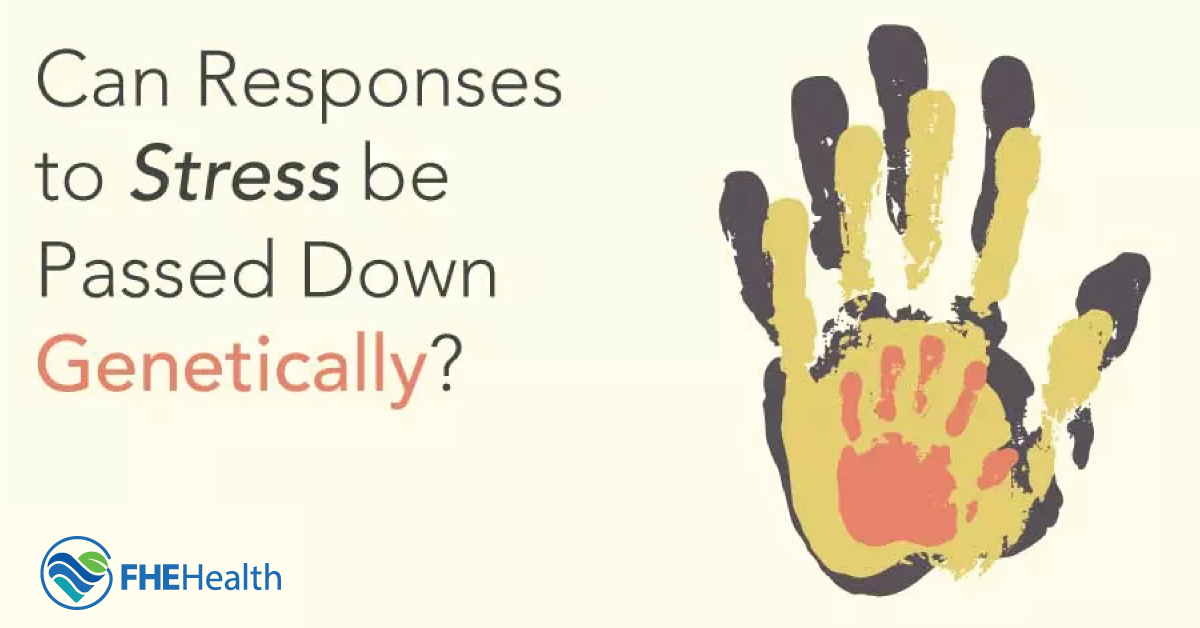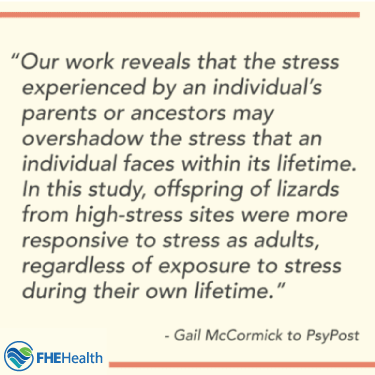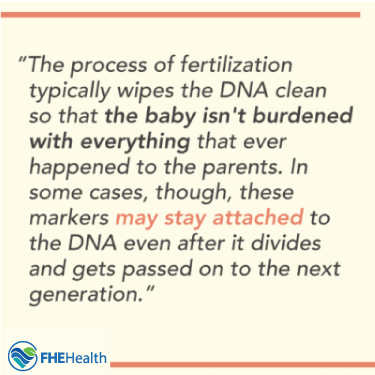
In the traditional view of genetics, the things encoded in your genes are distinct traits, such as hair color or whether you have a higher risk for heart disease. Genes from parents, grandparents and more distant ancestors combine to give you those specific traits, and most scientists thought that those genes were mostly unchangeable. New research is painting a different picture, though — and scientists now think that stress and trauma might actually affect not just your own brain but the genes you pass on to children and grandchildren. Scientists now believe there is a connection between stress and genetics.
Long-Term Stress for Offspring
 Stressful events could change your genes in ways that can be passed down to future generations. Yes, that is correct, stress and genetics can be passed down. In most cases, the effects seem to last just one or two generations, but further research might find longer-lasting impacts. Some of the recent studies that found a link between parent or grandparent stress and reactions in later generations include:
Stressful events could change your genes in ways that can be passed down to future generations. Yes, that is correct, stress and genetics can be passed down. In most cases, the effects seem to last just one or two generations, but further research might find longer-lasting impacts. Some of the recent studies that found a link between parent or grandparent stress and reactions in later generations include:
A study performed at Pennsylvania State University found that lizards exposed to stressful events would seemingly recover just fine, but their offspring have stronger reactions to stress.
Researchers at Mount Sinai Hospital in New York found that the descendants of Holocaust survivors have a higher likelihood of stress disorders compared to the children and grandchildren of Jewish people who lived outside of Europe during World War II.
Mice trained to fear the smell of cherry blossoms had offspring who also exhibited a fear response to this specific smell. The younger generation of mice didn’t experience fear related to other smells, and mice with parents who weren’t trained to be afraid of the cherry blossom fragrance didn’t act afraid when first exposed to it. This effect even lasted two generations, so the grandchildren of the original mice were also afraid of the smell.
A study published in the Proceedings of the National Academy of Sciences found that the sons of Civil War veterans who had been prisoners during the war had shorter lifespans than sons of soldiers who fought in the war but hadn’t been taken prisoner.
How Genetic Changes Affect Offspring

Most epigenetic changes that occur during a person’s life don’t get passed on. The process of fertilization typically wipes the DNA clean so that the baby isn’t burdened with everything that ever happened to the parents. In some cases, though, these markers may stay attached to the DNA even after it divides and gets passed on to the next generation.
Scientists have known for a while that epigenetic changes could affect offspring in terms of disease risk. As one example, some earlier studies showed that people exposed to famine had kids with a higher risk for diabetes and heart disease. The discovery that these epigenetic changes might affect mental health and stress responses is a new twist, though.
Mitigating the Effects of Generational Stress
Just as genes aren’t completely in control of your destiny, epigenetics also isn’t something that absolutely defines who you are. In some cases of epigenetic effects, scientists noted that providing a healthy environment can ease some of the impacts. Mothers who eat a nutritious diet during pregnancy may help their children avoid some of the negative impacts of generational stress and trauma. Self-care and professional counseling could help people already affected overcome their stronger reactions to stress.
If you’re suffering from mental health issues, such as anxiety disorders, along with substance abuse issues, getting help for both simultaneously could be key to a successful recovery. Whether the trauma and stress responses you feel come from your own personal history or are a generational effect, FHE Health can work with you to develop a unique customized treatment plan that tackles both your mental health issues and drug or alcohol addiction in a comprehensive, effective way.
Resources:
- https://www.psychologytoday.com/ca/blog/talking-about-trauma/201812/what-can-lizard-tell-us-about-mental-health






